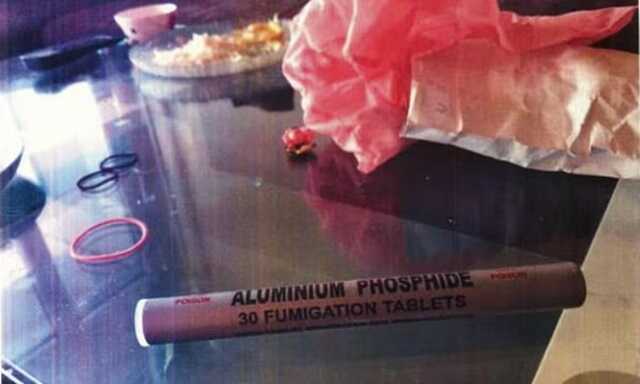
Jesmin Akter left aluminium phosphide around Tower Hamlets flat to deal with infestation, killing Fatiha Sabrin
A woman has been given a suspended sentence for accidentally killing her neighbour, a child on her 11th birthday, with poisonous gas she brought from Italy to exterminate bedbugs in her flat in London.
Jesmin Akter, 34, had illegally imported aluminium phosphide without a licence to deal with an infestation in her flat in Tower Hamlets, east London. She failed to read the packaging before distributing a deadly amount around the property and taking her family out for 24 hours.
The substance reacted with moisture creating the poisonous gas phosphine, likened to chemical warfare agents. It seeped into neighbouring flats at Nida House, killing Fatiha Sabrin on her 11th birthday and causing another young child to be hospitalised on 11 December 2021.

Fatiha Sabrin, 11, died after her neighbour released aluminium phosphide fumigation tablets inside her flat to be rid of bedbugs. Photograph: Internet
Akter admitted manslaughter by committing an unlawful act and importing a regulated substance. On Thursday, she was sentenced to two years in jail suspended for two years plus 150 hours of unpaid work.
Alexia Durran, the judge at the Old Bailey, noted there had been a problem with bedbugs in the defendant’s block of flats. She said: “The landlord had taken some action but it appears to have been rather cursory and the employees used to carry out the fumigation in the past do not appear to have been well trained or trained at all.”
Akter’s decision to deal with the issue by taking aluminium phosphide on a passenger flight from Italy could have caused a “catastrophic mid-air incident and put hundreds of lives at risk” if the packaging had been damaged, the judge said.
Within a “relatively short period” of the mother of two distributing the tablets in her flat, other occupants including children in the block began to feel unwell, the court heard.
The judge referred to a statement from Fatiha’s “heartbroken” father, Mohammed Islam. He described his daughter as an “amazing, intelligent child who made friends with everyone and was a great help to her mother”.
The judge said: “Fatiha died on her 11th birthday. It is now a date that haunts her family. The sentence I impose will not bring Fatiha back and will seem inadequate to Fatiha’s family.”
The judge noted Akter’s previous good character and told her: “I understand you are overwhelmed with crippling guilt. It seems highly unlikely you will ever forget what happened to Fatiha was the result of your actions. A young life full of promise has been lost.”
The court heard that Akter initially told police she bought the substance in a shop, but she later admitted her mother had brought it to Italy from Bangladesh.
Akter scattered the pellets around her flat and the toxic gas it created (phosphine) then escaped into other flats, prosecutor James Dawes KC said.
He said the level of phosphine that escaped into Fatiha’s home was estimated as being between two-and-a-half and 26 times the known lethal dose.
Fatiha woke at 4am on the morning of 11 December complaining to her mother, Kaniz, that she needed the toilet and was vomiting.
Her mother called her GP and the helpline 111 before phoning 999 at 9.30am.
Initially, Fatiha was advised by paramedics to take diarrhoea medication and eat plain food.
London Fire Brigade checked for carbon monoxide poisoning but found nothing, the court heard.
At 1.30pm, emergency services were called again as Fatiha’s condition deteriorated. Paramedics found she had stopped breathing and fallen unconscious at 3.30pm and she died in hospital just before 5pm.
The fire brigade declared a hazardous materials incident and further checks identified the poison.
Dawes said: “Because the first attendance of London Ambulance and Fire Brigade had been done without full protective equipment, there was concern at the time as well.”
In a statement, Akter said she obtained the “anti-bedbug” product on the advice of her family but did not read the packaging.
She said she “did not know the product contained a dangerous poison”, saying she was “desperate after the landlord tried and failed to get rid of the infestation”.
Akter apologised to Fatiha’s family who had “paid the price” for her actions.
Read more similar news:
Comments:
comments powered by Disqus

































